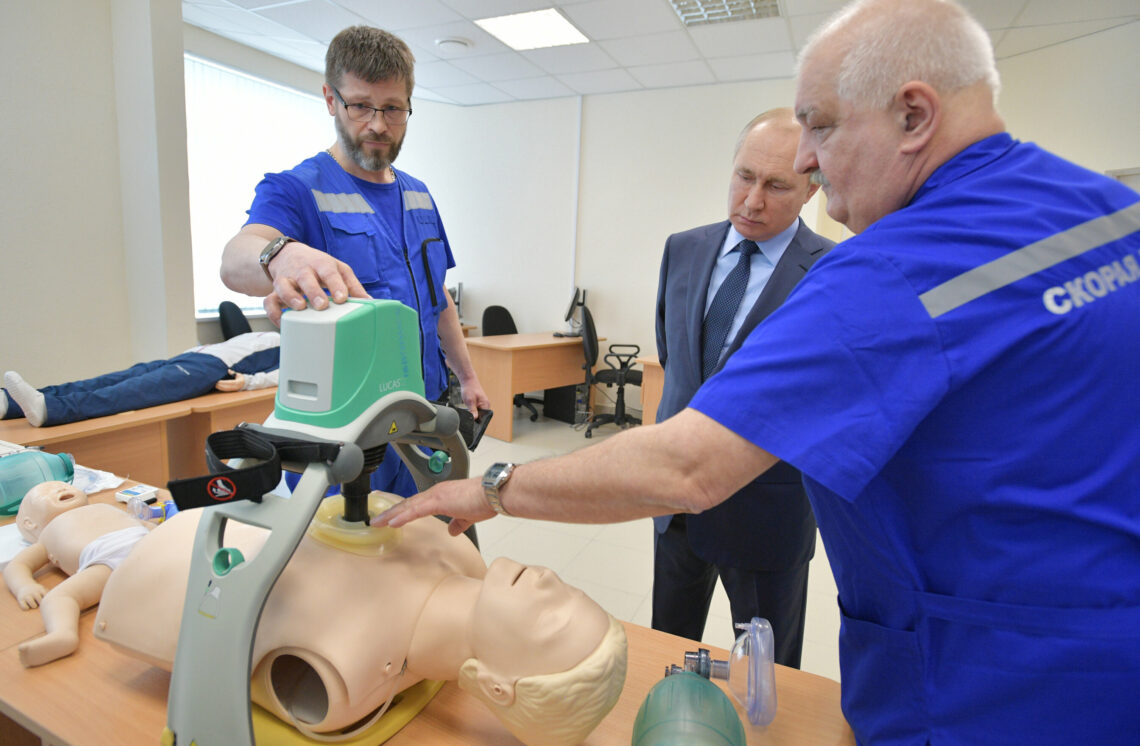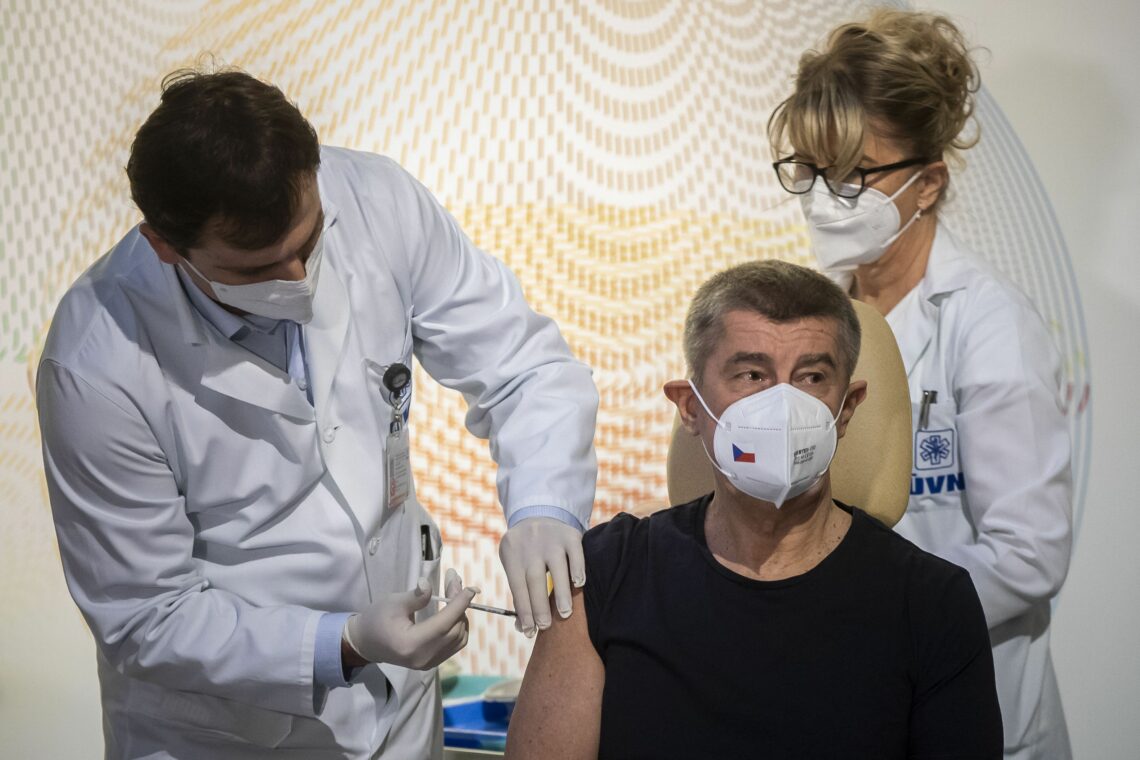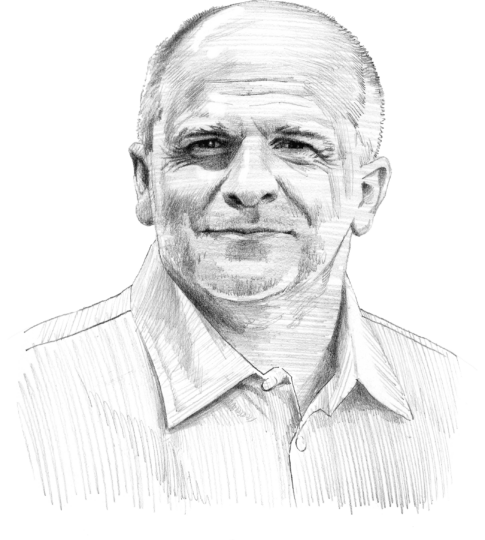Russia gains an advantage but remains weak
Recently, the Navalny incident, military exercises on the Ukrainian border, and a case of sabotage in the Czech Republic created new tensions between Russia and the West. Russia’s strategy could be to provoke, but Putin still faces problems at home.

In a nutshell
- Incidents have caused tensions between Russia and the West
- Russia is using the global upheaval to its advantage
- Still, the Putin regime is no stronger than before
In March and April 2021, Russia’s relations with the Western world became particularly tense on several levels. The Kremlin deliberately provoked the transatlantic community, showing its disregard for values endorsed by Western governments. The latter found themselves under considerable pressure to react when Moscow sentenced opposition leader Alexey Navalny to imprisonment in a penal colony.
In parallel, animosity ratcheted up over incidents in the Czech Republic and Ukraine. In April, investigative journalists revealed that officers of the Russian military intelligence had been involved in the 2014 explosions of two ammunition depots at an arms manufacturing facility in the Czech city of Vrbetice. Prague reacted by expelling 18 Russian diplomats and barring the Russian company Rosatom from participating in the expansion of a Czech nuclear power plant.
The crisis at the Russian-Ukrainian border in the spring of 2021 caused even greater tension in the Kremlin’s relations with the West. Formally, it was a military exercise. Russia organizes such maneuvers frequently as a routine test of combat readiness. But this time, observers were surprised by the scale of the operations. On April 23, Defense Minister Sergey Shoigu decided to withdraw some of the troops, but only about 10 percent of the forces returned to the barracks. Russia remains ready to escalate the situation. There is no doubt, however, that Mr. Shoigu’s order to partially withdraw was a modest capitulation from President Vladimir Putin in reaction to Western pressure.
Politics in chaos
Moscow’s renewed conflict with Ukraine could be an attempt to open a land route from Russia to occupied Crimea. In 2014, the Kremlin managed to capture Crimea and conducted an armed intervention in the Ukrainian Donbas, but no part of Ukraine has officially rejoined Russia – perhaps an unfinished project in the eyes of the Putin regime. The Russian government must ensure fresh water supplies for the inhabitants of the Crimean Peninsula due to the catastrophic drought there.
Russia’s actions could also be part of a strategy to bargain with the United States. The Kremlin would escalate tensions with Ukraine and the West only to back down in exchange for the White House agreeing to the completion of the Nord Stream 2 gas pipeline.
Russia is not a strong country today; it is actually weak.
In Hungary and the Czech Republic, the construction of nuclear plants is meant to boost Russian influence in Central Europe and weaken the region’s ties with the European Union. Moscow has significant sway over the Hungarian energy market; logically, the next step would be to extend this to the Czech Republic. But Prime Minister Andrej Babis, acting against the wishes of the pro-Russian Czech President Milos Zeman, has thwarted those plans by eliminating Rosatom from a nuclear tender.
As a result of the radical stance of the previous U.S. administration, the EU’s weakness and the Covid-19 shock, chaos has crept into international relations. Transatlantic relations are mutating, and so are Russia’s dealings with the West, while China grows ever stronger.
Russia is not a strong country today; it is actually weak. Still, the Kremlin is continuously attempting to restore its former empire. It is probably not only Mr. Putin himself, but also his close associates who perceive the current disruptions as an opportunity to strengthen Russia’s position in Central Europe, through military interventions and the support of politicians like Hungary’s President Viktor Orban.
Russia’s trump card in this transition period is that, as an authoritarian state, it has a much greater capacity to manage chaos than democratic Western nations. The Kremlin probably assumes that the West’s governments will have a limited field of action for some time because of the pandemic. Meanwhile, Moscow has not become stronger, but it moves more effectively in a tumultuous international climate. Russian strategists are all too aware of the significant uncertainties that weigh on the future global order.

Observing Biden
As of yet, the Putin regime has no way to tell how the Biden administration will interact with the European Union. U.S. President Donald Trump’s policy toward the EU was helpful to Russia. But contrary to the predictions of his opponents, Mr. Trump did not bring about a rapprochement with Russia and, in some areas, even intensified the U.S.-Russian rivalry.
Nord Stream 2 has become a battlefield between Moscow and Washington. President Trump, influenced by American industry, was in favor of imposing sanctions on companies that participate in the assembly of the gas pipeline. This policy corresponded to the expectations of the countries of the region, especially Poland and Ukraine, which oppose the project.
Secretary of State Antony Blinken is focused on renewing transatlantic relations.
At the same time, President Trump’s approach to the European Union was essentially the same as Russia’s – he ignored EU institutions, snubbed Germany and dealt with individual member states. The 45th president of the U.S. is not the main culprit behind the European Union’s weakness today, but he did contribute to the situation.
The presence of Joe Biden in the White House could prove a serious problem for Mr. Putin. If we are to believe the declarations in Washington, Secretary of State Antony Blinken is focused on renewing transatlantic relations. He is already signaling to European countries when declaring that adherence to democratic principles will once again be necessary to belong to the community of democratic Western states. In this worldview, the U.S. partner countries must be compatible with the Western system in practically every respect, including separation of powers, democratic elections and economic competition.
Khrushchev complex
The recent crisis was also a test of political endurance at home for President Putin. Observers have been saying for years that the president’s position is weakening. Attempts at economic reforms have failed, and he has lost his position as the guarantor of prosperity. This caused the president’s popularity to decline and probably raised the question of succession, at least internally. Mr. Putin’s entourage, called by some analysts in the West “collective Putin,” is not only interested in keeping the Russian president in power, but also in preserving the influence of the entire group.
There is something in Russian politics that can be described as “the Khrushchev complex.” The story dates back to the fall of 1962, when the Soviet leader caused a dangerous confrontation over Cuba. U.S. President John F. Kennedy was aware of the tension that accompanied this escalation on the Soviet side. However, he assumed that Khrushchev was not ready for a full-blown military clash with the use of nuclear weapons. Khrushchev backed down due to Kennedy’s tough stance and behind-the-scenes pressure. This concession gave the Soviet leader some recognition on the world stage, but in his own circle it confirmed the opinion that he was not determined enough to confront the West.
The outcome of the recent friction suggests that Mr. Putin could not withstand international tension.
Two years after the Cuban crisis, Khrushchev was no longer head of the Soviet Union, and he spent the last years of his life in oblivion. The current crisis is, of course, different, but a parallel can still be drawn. In April, Jen Psaki, spokeswoman for the White House, signaled the Biden administration’s irritation with Russian policy in the region, declaring that Washington is determined to counter both visible and hidden subversion from the Kremlin.
Scenarios
The outcome of the recent friction suggests that Mr. Putin, like Khrushchev, could not withstand international tension – even if most countries reacted with relative moderation. At the same time, Russia maintains the potential, both political and military, to irk the West.
Paradoxically, the tension of recent weeks, which was interpreted as a victory for President Putin, may initiate a process that will lead to his replacement for a different leader from his power circle. He will be seen as a leader who missed an opportunity to retaliate for the collapse of the Soviet Union and its consequences for Russia. And the Russian secret service elite is constantly blaming the West for these “historical tragedies.”
Another possibility is that, like after the war with Georgia in 2008, Mr. Putin will learn from his mistakes, wait for U.S. policy toward Russia, China and the EU to clarify, and then once again try to create friction to make tactical gains. The question is how much the West will learn from the current escalation.








